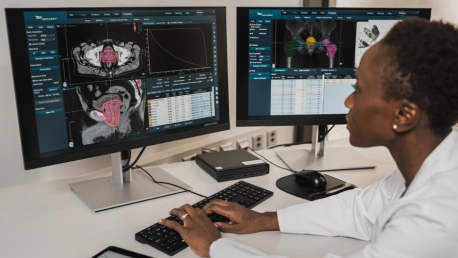As people in the US and abroad celebrate the holiday season, policymakers, scientists, and doctors are struggling to solve the most important problems in finance and healthcare. This year has been difficult for many people around the world, bringing several interlocking crises, including the COVID-19 pandemic, surging inflation, and a new conflict in Ukraine. However, there were also numerous achievements—the end of the pandemic and the first COVID-free holiday season in recent years.
In this article, we will look at 5 of the major healthcare challenges Americans faced this year.
The COVID-19 Pandemic
According to CNBC, Dr. Anthony Fauci recently warned Americans that the country is “certainly” still in the middle of a COVID-19 pandemic, and he expressed concerns about the disruptive nature of American politics and its effects. Dr. Fauci explained that approximately 400 Americans are still losing their lives because of the virus every day. At the same time, the percentage of people vaccinated with the latest booster shot is less than 15%. According to the Centers for Disease Control and Prevention (CDC), the COVID-19 pandemic is winding down, and vaccines continue to be effective in reducing related mortality. However, the CDC advises Americans to continue wearing masks, get tested if they show any symptoms of the disease, and stay up to date with the new vaccines and boosters.
The “Long COVID” Threat
When recovering from a COVID-19 infection, many people struggle with persistent symptoms of the disease, which can last for months. This phenomenon is known as long COVID and can prove problematic for patients, physicians, and researchers. It includes symptoms such as cough, tiredness, difficulty thinking or concentrating, and numerous other general, neurological, or digestive symptoms. According to the CDC, people with severe COVID-19 infection may develop multiorgan response or autoimmune conditions after recovering from the virus.
The health agency stated that scientists are still trying to understand which people are more likely to experience post-COVID conditions. CDC advised Americans to get vaccinated because the best way to prevent long COVID is to avoid becoming infected in the first place.
The Spike in Anxiety and Stress
According to the World Health Organization (WHO), the global prevalence of anxiety and depression has increased by 25% in the first year of the recent healthcare crisis. As stress, anxiety, and depression become more widespread, the availability of good mental health services becomes increasingly important to people. WHO assures people that 90% of the countries analyzed during the current healthcare crisis include mental health support as part of their COVID-19 response plans. Dr. Tedros Adhanom Ghebreyesus (Director-General of WHO) stated that countries should do more to support the mental health of their populations.
Moreover, a recent survey shows that more than one-third of Americans used anti-anxiety medications to manage family stress during the holidays. This suggests a significant increase in stress and anxiety this holiday season.
High Healthcare Costs
One of the troubling issues facing Americans lately is the high healthcare costs. According to President Joe Biden, lowering the cost of prescription drugs has become extremely efficient in order to give American families more room for other expenses. The main reasons for high healthcare costs are rising drug costs, increase in doctor’s salary, and high hospital care bills.
Cybersecurity Challenges in Telemedicine
The COVID-19 pandemic has undoubtedly demonstrated how beneficial telemedicine services are to the healthcare industry. However, the COVID-19 years have also brought to light numerous vulnerabilities that can bring down the healthcare sector. Ransomware attacks, data breaches, and other cybersecurity issues can cause significant troubles for patients and doctors. A recent Check Point Research study revealed that ransomware attacks have become more common, and medical institutions need to take precautions to prevent these threats. Simple actions, such as 2-factor authentication and regular software updates, can prove extremely useful in protecting sensitive patient data.
Although telemedicine is struggling with cybersecurity issues, there is still some good news—according to Mordor Intelligence, the telehealth market is projected to rise from approximately $38 billion today to almost $168 billion by 2026.









